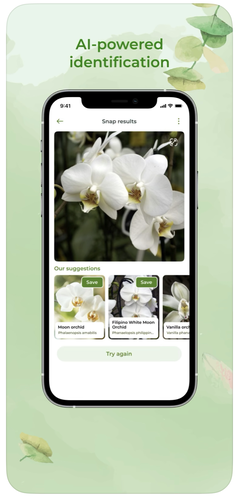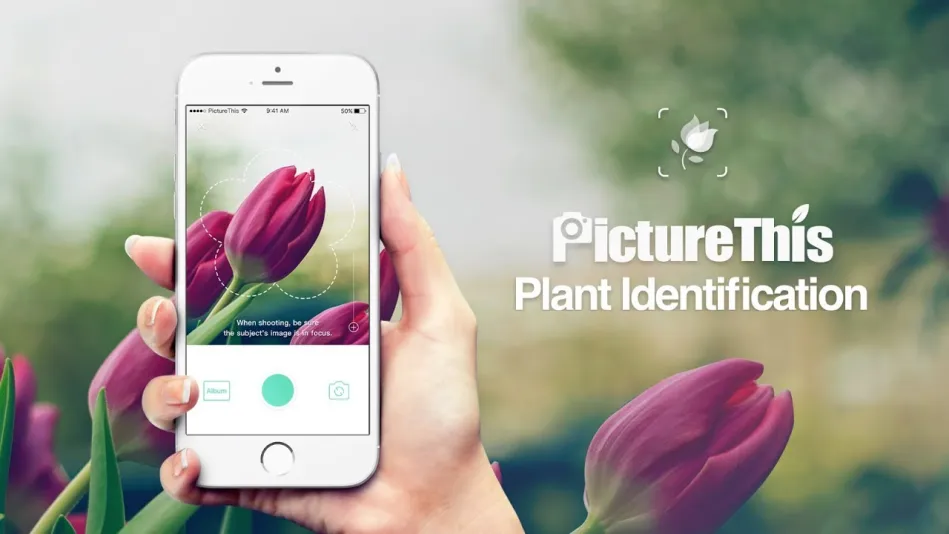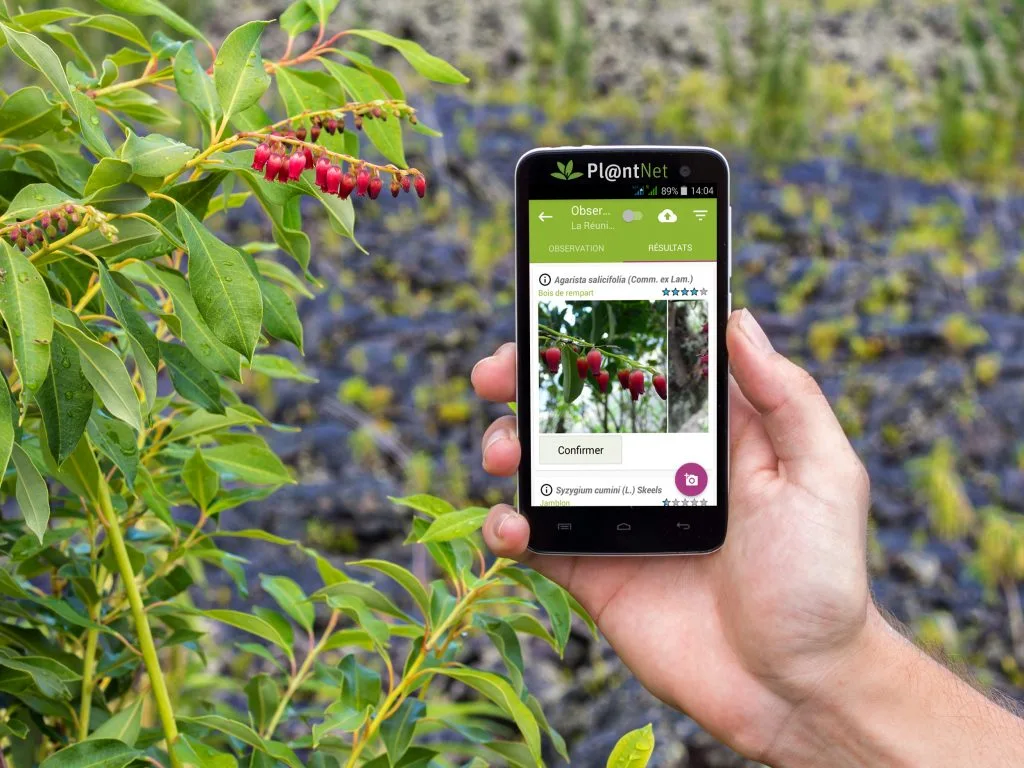Contents
Introduction
In today’s busy world, keeping indoor plants healthy and thriving can feel like a full-time job—especially if you’re an apartment gardener with limited space and time. Fortunately, plant identification apps have become a game-changer for plant enthusiasts. These nifty tools help you identify plants quickly, understand their needs, and tackle any issues that arise.
Imagine this: you’re at a local nursery or even just taking a stroll through your neighborhood, and you spot a plant that catches your eye. With a plant identification app on your phone, you can snap a quick photo, and voilà! The app instantly tells you what plant it is, how to care for it, and any special requirements it might have. It’s like having a personal plant expert right in your pocket!
But why stop there? These apps aren’t just about identifying plants. They come packed with a treasure trove of features, from detailed care guides and tips to community forums where you can ask questions and share advice. They help you keep your plants in top shape, avoid common mistakes, and even connect with other plant lovers.
For apartment gardeners, this means no more guessing games about watering schedules, sunlight needs, or potential pests. You’ll have all the info you need to create a thriving indoor garden without the stress. Plus, many of these apps offer additional perks like plant care reminders and expert advice to keep your green friends happy and healthy.
So, whether you’re a seasoned plant pro or just starting out, plant identification apps can make your gardening journey easier and more enjoyable. Let’s dive into some of the top apps available today and find out how they can transform your apartment gardening experience!
PlantSnap
When it comes to plant identification apps, PlantSnap is a standout choice, especially for those who love a user-friendly experience and instant results. Imagine being able to take a photo of any plant and get instant information about what it is—PlantSnap makes this possible with just a few taps on your phone.

Features: PlantSnap uses advanced technology to identify plants from a simple snapshot. Just open the app, snap a picture of the plant you’re curious about, and within moments, you’ll receive detailed information. The app boasts an extensive database that includes everything from vibrant flowers and towering trees to trendy succulents, making it a versatile tool for any plant enthusiast. The interface is designed to be intuitive and easy to navigate, so even if you’re not tech-savvy, you’ll find it straightforward to use.
Pros: One of the biggest advantages of PlantSnap is its speed and accuracy. The app quickly provides reliable identification, saving you the hassle of researching each plant on your own. Plus, it offers useful plant care tips right within the app, helping you keep your plants in optimal condition.
Cons: While PlantSnap offers a lot of great features, some of them come with a price tag. The app has a free version, but accessing all its features may require a premium subscription. For those who want the full experience, there might be an additional cost involved.
Best For: PlantSnap is perfect for gardeners who want a comprehensive database and speedy plant identification. If you’re someone who loves discovering new plants and needs a reliable tool to help with quick identifications and care tips, this app is definitely worth checking out.
Overall, PlantSnap offers a great balance of functionality and ease of use, making it a top choice for anyone looking to enhance their apartment gardening experience.
PictureThis
When it comes to plant identification apps that combine powerful technology with helpful features, PictureThis is a top contender. This app is perfect for those who want not only to identify plants quickly but also to dive deep into care guides and connect with a community of fellow gardeners.

Features: PictureThis leverages AI technology to provide accurate plant identification from photos. Simply snap a picture of the plant you’re curious about, and the app will analyze it and give you detailed information about its species. Beyond just identification, PictureThis also offers extensive care guides. You’ll get insights into the plant’s needs, including watering schedules, light requirements, and common issues. Plus, the app includes a community feature where you can share plant photos and seek advice from other users.
Pros: One of the standout features of PictureThis is its high accuracy in plant identification. The app’s AI technology ensures you get reliable results, which is especially useful for identifying less common plants. Additionally, the detailed care guides are a great resource for keeping your plants healthy. The community aspect also adds a social dimension, allowing you to engage with other plant enthusiasts.
Cons: While PictureThis offers a lot of great features, the free version has limitations. Some of the more advanced features, like unlimited plant identifications and detailed care guides, require a premium subscription. This might be a drawback for users looking for a completely free option.
Best For: PictureThis is ideal for gardeners who want a comprehensive tool for both plant identification and care. If you’re looking for an app that not only helps you figure out what your plants are but also provides detailed advice on how to care for them, PictureThis is a fantastic choice.
In summary, PictureThis offers a robust set of features that make it an excellent companion for apartment gardeners. With its accurate identification, detailed care information, and community support, it’s a valuable tool for anyone looking to enhance their indoor gardening experience.
PlantNet
If you’re a gardener who loves to dive into a community-driven approach to plant identification, PlantNet is an app worth exploring. It’s an excellent choice for those who appreciate a blend of technology and social engagement to help with plant care and identification.

Features: PlantNet stands out for its collaborative approach to plant identification. When you use the app, you contribute to a growing database by sharing your own plant photos. The app uses this community-driven data to help identify plants through photo recognition. Simply take a picture of the plant in question, and PlantNet will compare it to its extensive database to provide an identification. In addition to identifying plants, the app offers information on various plant habitats and characteristics, which can be particularly useful for understanding your plants better.
Pros: One of the major benefits of PlantNet is its community-driven model. This means the app’s database is constantly updated with new plant data, making it a living resource that grows over time. It’s also completely free to use, which is a significant plus for budget-conscious gardeners. The app’s collaborative nature means you get to be part of a larger network of plant enthusiasts, contributing to and benefiting from a shared knowledge base.
Cons: Despite its advantages, PlantNet can sometimes struggle with accuracy, especially when it comes to less common plants or very similar species. Because the database relies on user contributions, there may be occasional inconsistencies or gaps in information.
Best For: PlantNet is perfect for gardeners who enjoy being part of a community and contributing to a shared resource. If you appreciate the idea of a free app that evolves with input from its users and want to be involved in a global network of plant lovers, PlantNet is a great option.
In summary, PlantNet offers a unique and engaging way to identify plants while contributing to a broader gardening community. Its free, collaborative approach makes it a valuable tool for apartment gardeners who want to connect with others and support a growing database of plant information.
iNaturalist
For those who enjoy blending plant identification with a touch of citizen science, iNaturalist is an exceptional choice. This app is ideal for gardeners who want to contribute to scientific research while discovering more about the plants around them.
Features: iNaturalist allows users to identify plants through photo submissions, which are then reviewed by a global community of naturalists and experts. Simply take a picture of a plant, upload it to the app, and the community helps identify it. The app integrates with a vast database of plant species, making it a valuable resource for identifying both common and rare plants. Additionally, iNaturalist offers citizen science features, allowing you to contribute to research projects and track plant observations over time.
Pros: One of the biggest advantages of iNaturalist is its high level of accuracy, thanks to the involvement of a global community of experts. The app’s focus on scientific data means that your plant observations can contribute to valuable research and conservation efforts. It’s also a great tool for discovering new plants and tracking your own observations.
Cons: While iNaturalist excels in scientific data and community involvement, it may not provide as much detailed plant care information as some other apps. The focus is more on identification and research, which might not be as helpful for those seeking specific care tips for their plants.
Best For: iNaturalist is perfect for gardeners who are interested in contributing to scientific research and enjoy engaging with a global community of nature enthusiasts. If you’re passionate about plant conservation and want to be part of a larger effort to study and protect plant species, iNaturalist is an excellent app to consider.
In summary, iNaturalist offers a unique combination of plant identification and citizen science, making it a valuable tool for apartment gardeners who want to engage with global research and conservation efforts. Its accuracy and community involvement set it apart as a top choice for those who enjoy blending gardening with scientific inquiry.
LeafSnap
For those who are particularly interested in identifying plants by their leaves, LeafSnap offers a specialized tool that focuses on leaf-based plant recognition. This app is ideal for gardeners who want to use leaf shape and structure to identify their plants.
Features: LeafSnap uses advanced photo recognition technology to identify plants based on their leaves. Simply take a photo of the leaf, and the app will analyze it to determine the plant species. The app’s database includes a wide range of plants, making it a useful tool for both common and less familiar species. In addition to identification, LeafSnap provides educational resources about plant biology, helping users learn more about the different parts of plants and their functions.
Pros: One of the main advantages of LeafSnap is its focus on leaf-based identification, which can be especially useful for plants where the leaf shape is the most distinctive feature. The app also offers educational content that helps users understand plant characteristics better. This combination of features makes it a valuable tool for learning about plants as well as identifying them.
Cons: However, LeafSnap may not be as effective for plants that do not have distinctive or easily recognizable leaves. The app’s focus on leaf shape means that it might not perform as well with plants that have less noticeable or atypical leaf structures.
Best For: LeafSnap is ideal for gardeners who are particularly interested in identifying plants based on their leaves. If you enjoy examining plant leaves and want a tool that specializes in this aspect of plant identification, LeafSnap is a great option.
In summary, LeafSnap provides a focused approach to plant identification, emphasizing leaf characteristics and offering educational content. It’s a valuable app for apartment gardeners who want to leverage leaf shape and structure to identify their plants and expand their botanical knowledge.
Flora Incognita
For those passionate about plant conservation and detailed botanical information, Flora Incognita is an app that blends advanced technology with a focus on plant ecology. It’s a great choice for gardeners who want to dive deeper into plant identification and contribute to research efforts.
Features: Flora Incognita allows users to identify plants through high-quality photos, which are analyzed using sophisticated algorithms. The app not only provides plant identification but also offers detailed information about plant ecology, including their natural habitats and conservation status. Flora Incognita integrates with various research projects, enabling users to contribute valuable data to scientific studies on plant species and their distribution.
Pros: One of the standout features of Flora Incognita is its focus on plant ecology and conservation. The app provides in-depth information about the plants’ roles in their ecosystems and their conservation needs. This educational aspect is particularly valuable for those interested in environmental science and plant conservation. The app’s integration with research projects also means that your plant observations can contribute to important scientific work.
Cons: While Flora Incognita offers extensive botanical information, it may be more complex for casual users who are simply looking for basic plant identification. The depth of information might be overwhelming if you’re primarily interested in straightforward plant care tips rather than detailed ecological data.
Best For: Flora Incognita is ideal for gardeners who have a strong interest in plant ecology and conservation. If you’re looking to deepen your understanding of plants and contribute to scientific research, this app offers a rich set of features that cater to those interests.
In summary, Flora Incognita provides a comprehensive tool for plant identification with a strong emphasis on ecological and conservation information. It’s a valuable resource for apartment gardeners who want to engage with detailed botanical knowledge and support conservation efforts through their observations.
Garden Answers
For those who seek a blend of practical plant identification and expert gardening advice, Garden Answers is a top-notch app that delivers on both fronts. This app is particularly useful for apartment gardeners who want personalized guidance and reliable identification in one place.
Features: Garden Answers stands out with its combination of photo-based plant identification and expert advice. Simply snap a picture of a plant, and the app will quickly identify it and provide detailed information about its care needs. Beyond identification, Garden Answers offers a wealth of gardening tips and solutions to common plant problems. The app’s database includes a wide range of plants, and its expert team is available to answer specific questions you might have about your plants.
Pros: One of the biggest advantages of Garden Answers is the personalized advice you can receive from gardening experts. This feature is especially helpful for addressing specific issues or concerns you have with your plants. The app’s comprehensive plant database and care tips make it a valuable resource for both novice and experienced gardeners. The ability to get expert answers directly within the app adds an extra layer of support for maintaining a healthy indoor garden.
Cons: While Garden Answers offers a lot of useful features, some of them are only available through a premium subscription. Accessing all the expert advice and advanced features might require additional costs, which could be a consideration for users on a budget.
Best For: Garden Answers is perfect for gardeners who want a combination of accurate plant identification and expert gardening advice. If you’re looking for an app that not only helps you identify your plants but also provides personalized care tips and solutions to specific problems, Garden Answers is a great choice.
In summary, Garden Answers offers a valuable mix of plant identification and expert advice, making it an excellent tool for apartment gardeners who want reliable information and personalized support. Its comprehensive features help ensure your indoor garden remains healthy and thriving.
Conclusion
Choosing the right plant identification app can make a significant difference in how you care for your indoor garden, especially when space and time are limited in an apartment setting. Each app discussed offers unique features tailored to various needs, from quick and accurate plant identification to detailed care guides and community support.
Summary of App Benefits:
- PlantSnap provides fast and accurate plant identification with a user-friendly interface and extensive database, making it ideal for gardeners who want a reliable and quick solution.
- PictureThis excels with its AI-powered identification and detailed care guides, along with a community feature for sharing and seeking advice, perfect for those who want comprehensive information and interaction.
- PlantNet leverages a community-driven approach to maintain an evolving database of plant information, offering a free and collaborative resource that’s great for budget-conscious gardeners.
- iNaturalist combines plant identification with citizen science, allowing users to contribute to global research efforts and engage with a broad community of naturalists, making it suitable for those interested in scientific contributions.
- LeafSnap focuses on leaf-based identification, providing educational resources about plant biology, which is particularly useful if you’re interested in learning more about plant structures.
- Flora Incognita offers detailed ecological and conservation information, integrating with research projects to enhance your understanding of plants and contribute to scientific studies, ideal for those passionate about conservation.
- Garden Answers provides both plant identification and expert advice, with a feature to address specific plant issues, making it valuable for gardeners seeking personalized support.
Final Recommendations: When selecting the best app for your needs, consider what aspects are most important to you. If you need quick and reliable identification, PlantSnap might be your go-to. For those who value detailed care information and community interaction, PictureThis could be the best fit. If you’re interested in contributing to scientific research or learning about plant conservation, iNaturalist and Flora Incognita offer unique opportunities.
Trying out a few of these apps can help you find the one that best suits your gardening style and goals. Each app brings something different to the table, so explore their features and see which one aligns with your needs.
Incorporating these plant identification apps into your gardening routine can transform your apartment gardening experience, making it easier to care for your plants and enhancing your enjoyment of indoor gardening.



